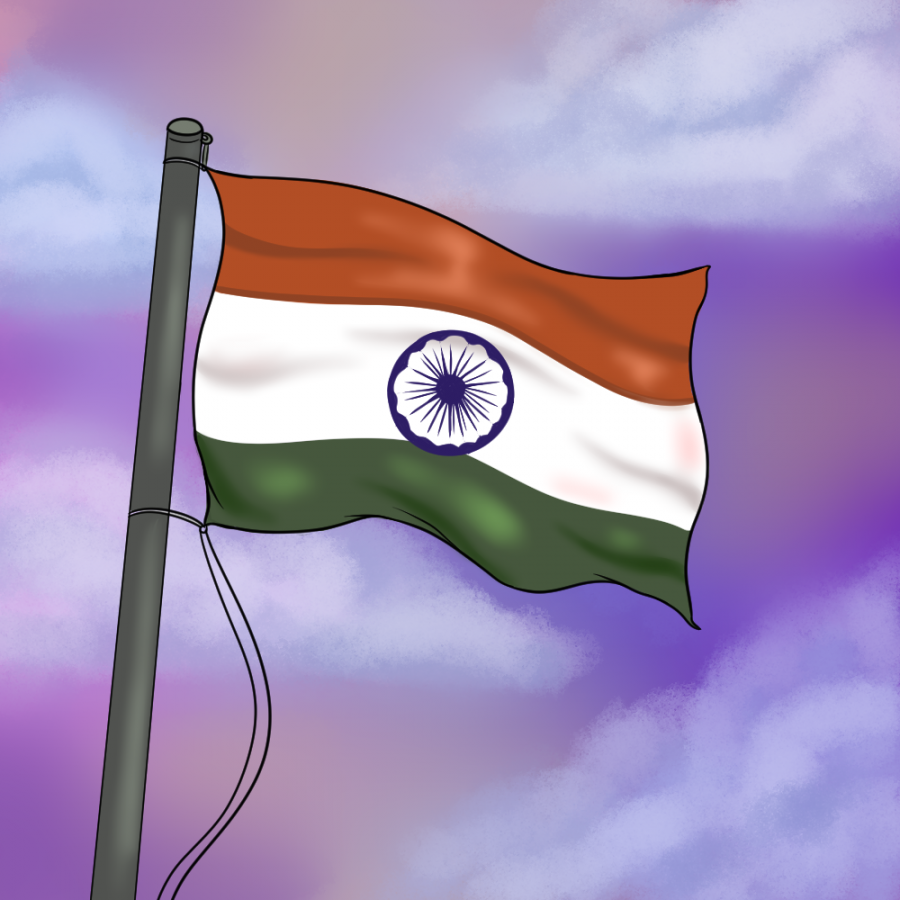Some students concerned about anti-Hindu nationalism conference turning into anti-Hinduism rhetoric
September 14, 2021
Editor’s Note: This article first appeared as part of the September 10 flipbook.
Content warning: This article contains discussions of racism and death.
UT’s South Asia Institute is sponsoring a national conference aimed at “dismantling” a right-wing political ideology that stems from a radicalized branch of Hinduism and is gaining political power in India. Some UT students are concerned the conference may promote anti-Hindu rhetoric, since some speakers have disrespected religious Hindu symbols and scriptures in the past.
Over 40 universities are sponsoring the Dismantling Global Hindutva conference, which will take place virtually Sept. 10-12. The conference will host several speakers to discuss Hindutva, a pro-Hindu political ideology that would establish Hinduism as the sole and supreme religion in India and push out minority faiths such as Islam.
Hinduism vs. Hindutva
Snehal Shingavi, Asian American studies and English professor, said some conference controversy comes from confusion about the difference between Hinduism and Hindutva. About 80% of people in India practice Hinduism, one of the world’s oldest religions which emphasizes truth and a harmonious way of life. Hindutva is a political ideology used to place Hinduism above other religions and create a religiously homogeneous society.
Many people oppose the conference because they believe it will promote anti-Hindu views by inaccurately conflating Hindutva and Hinduism.
“The Dismantling Global Hindutva conference is trying to highlight the dangers of this political formation which many have associated with the closest thing we have in the world today to mid-20th-century ideas of fascism,” Shingavi said. “Many of the leaders of Hindutva organizations in the earlier part of the 20th centuries actually drew inspiration from Hitler and Mussolini.”
Currently, Hindutva has gained traction through India’s leading right-wing political party that is trying to push out other religions from India and establish it as a solely Hindu country. India’s prime minister has passed multiple bills such as the Citizenship Amendment Act in 2019, forcing non-Hindu undocumented residents to leave India.
Shingavi said it is important for South Asian Americans to understand what is going on in India with Hindutva.
“Organizing South Asians in the United States in arming them with some activist knowledge, some history, some political ideas and some tactics to be able to challenge and resist (Hindutva) is important,” Shingavi said.
Student Concerns
Hindu on Campus, an Indian diaspora student activist organization, released a video clip on Twitter on Aug. 19 expressing its concerns about the respective speakers in the conference.
In the video, Hindu on Campus included tweets from speakers who exhibited anti-Hindu views in the past. The organization referenced the conference’s speaker Kavita Krishnan, who tweeted in 2015 about two brothers who murdered their sister for trying to elope with her cousin because Hindu values prompted them to.
Krishnan said the brothers committed murder because the Hindu festival Raksha Bandhan, which celebrates brotherly protection, gave them the right to control their sister’s actions. Hindu on Campus clarified in the video that the members of the isolated incident did not practice Hinduism, and Krishnan used the example to incorrectly portray violent acts motivated by the religion.
Siddarth Kaki, a member of UT’s Chinmaya Mission chapter, a religious Hindu organization that promotes the study of Hindu scriptures, said the political opinions showcased in the conference are important, but he feels the Hindu religion and its scripture should stay out of the event altogether.
“The issue, however, is that it very much seems like the conference is a smokescreen. They say it’s against Hindutva, but almost every single panelist they listed the names there and all the materials that they’ve sent out, have very specifically anti-Hindu biases,” said Kaki, an aerospace engineering graduate student.
Kaki said panelists disrespected Hindu texts and scriptures in the past. Meena Kandasamy, a speaker at the conference, wrote a poem in 2012, sexualizing deities in the Ramayana, a scripture explaining the importance of familial relationships and social responsibility.
In the story, when the prince goes to live in the forest to fulfill a promise to his father, his wife gets kidnapped, which leads the prince to fight a war to free her. Kandasamy’s poem overly sexualized the scripture by claiming the wife had sexual feelings toward her kidnapper, Hindu on Campus said.
“Some of the speakers on the line take some very revered texts and stories from Hinduism and portray it in a disturbing fashion,” Kaki said. “There’s really no other point (in) saying something in a derogatory fashion, other than if you have a bias against them.”
Lalith Gannavaram, also a member of UT’s Chinmaya Mission chapter, said he feels the way the conference advertising itself evokes confusion and controversy.
“(Dismantling Global Hindutva) suggests … it’s not just a political ideology that’s being propagated in India but a common thread (in) Indians across the globe,” said Gannavaram, an aerospace engineering and Sanskrit senior.
Gannavaram said he urges everyone to take an educated viewpoint without any preconceived biases toward or against the conference.
“I am strongly on one side, but that doesn’t mean that the conference should not happen,” Gannavaram said. “It means that the method of discussion needs to be mediated and needs to be a debate rather than a verdict.”












